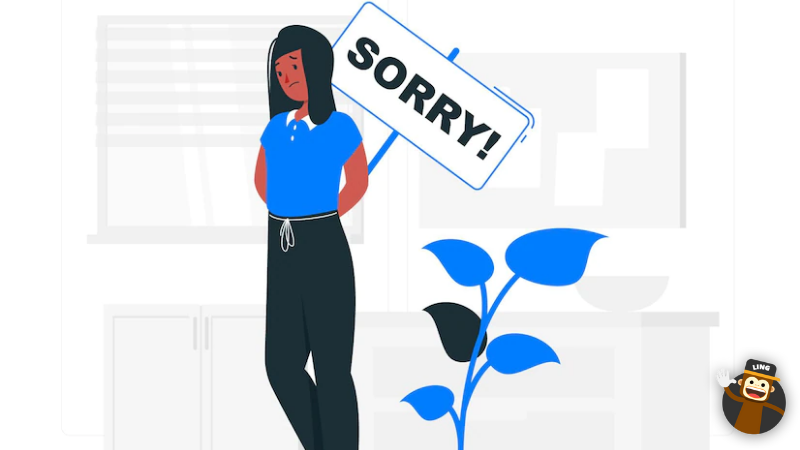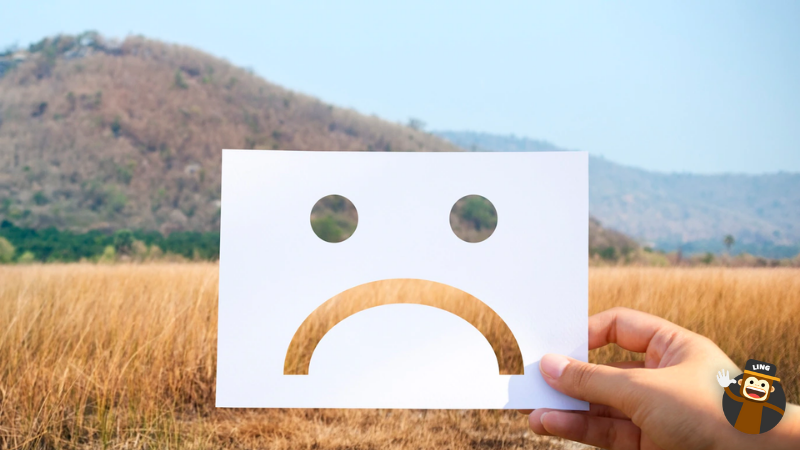What are the best ways to express your apologies in Danish? If you want to learn the best ways to apologize in Danish, you have arrived at the right place!
It is very important to have good manners when introducing yourself and traveling abroad. Not to mention, Danish people are very polite. They do not have a word for please, but they say thank you often. They also like others to be on time when it comes to appointments, so it will be helpful to know how to say sorry in case you are ever late.
In addition, apologies can be used to get another person’s attention in a polite way, such as when you need to interrupt them, skip the line, or ask for information.
So, let’s see what the best ways to apologize in Danish are and how to best learn Danish!
Common Ways To Say Sorry In Danish

It’s normal to make mistakes. The most important thing is that you know how to apologize and maintain proper etiquette at all times, especially in formal circumstances.
You can just say sorry by using the Danish word “Undskyld“. This is the most common way to apologize. Although you can get away with this word in most cases, you might want to learn more phrases for different circumstances.
Here are the best ways to express your apologies in Danish:
- Jeg er ked af det – I’m sorry about that
- Undskyld – Sorry (also used to get past someone or if you need to interrupt someone)
- Beklager dette – Sorry about this
- Beklager ulejligheden – Sorry for the inconvenience
- Beklager ulejligheden for dig – Sorry for the inconvenience caused to you
- Undskyld, jeg kommer for sent – Sorry I’m late
- Jeg beklager oprigtigt – I sincerely apologize
- Jeg vil gerne undskylde – I would like to apologize
- Jeg gør det ikke igen – I won’t do it again
- Det mente jeg ikke – I didn’t mean that
- Det er min skyld – It’s my fault
- Jeg håber, du tilgiver mig – I hope you will forgive me
- Jeg skulle ikke have gjort det – I shouldn’t have done it
- Vær nu ikke vred på mig – Please don’t be mad at me
- Undskyld for det sene svar – Sorry for the late reply
- Undskyld forsinkelsen – Sorry for the delay
- Undskyld jeg forstår ikke – Sorry I don’t understand
- Undskyld jeg kan ikke – Sorry I can’t
- Desværre jeg skal gå – Sorry I gotta run
How To Respond To An Apologies In Danish

If someone apologizes to you, it is important not to remain silent. You should reply appropriately to make sure that the other person knows you heard and accepted the apology.
Here are some examples you can use:
- Bare rolig det er ok – Don’t worry, it’s ok
- Det er ikke noget problem – It’s not a problem
- Tak – Thanks
- Tak skal du have – Thank you
- Mange take – Thank you so much
- Du behøver ikke at undskylde – You do not need to apologize
- Ingen problemer – No worries
Essential Danish Etiquette You Should Know

If you do not want to apologize often, then you should know about some general etiquette rules to use in everyday life. As we mentioned earlier, punctuality is considered very important in Denmark.
If you have an appointment at a specific time, you shouldn’t arrive late. It’s considered bad manners to arrive late. However, if you are early, you should wait until the time of the appointment or event and enter right on time!
In case you are late, you should call the host and notify them. During the conversation, make sure that you apologize and explain that you will arrive soon.
If you are invited to a dinner, it is common for the guest to ask the host if they need help with the preparations. During dinner, you should not be speaking about work or business unless the event is work-related. If not, you can enjoy some fun with your Danish friends!
You don’t need to worry too much about speaking Danish in front of Danes! They usually understand and empathize with those who are not native speakers and will help by speaking English. However, you should show that you’re putting in the effort to learn their language by speaking in Danish.
If you want to improve your relationship with a Dane, you should make sure that the host knows how good everything was and that you had a wonderful time the day after dinner.
Keep in mind that if you go to Denmark to attend business meetings, you should always have an appointment. In fact, it is bad manners to go in uninvited!
Lastly, you should remove your shoes when you enter someone’s house in Denmark, unless it is an event that is being held both indoors and outdoors.
Learn Danish Today
That’s all you need to know about apologies in Danish! Learning Danish can be challenging without proper assistance. If you decide to travel to Denmark, the best application you can use to improve your Danish is the Ling App!
Ling is a language learning platform that is easy and fun to use. No matter where you are in the world or what device you are using, computer or phone, you can access the app!
In addition, Ling contains tons of language lessons and courses that not only focus on teaching you essential words, but you can learn complex grammar rules to help you advance even more! Aside from the Danish language, Ling offers lessons in more than 60 languages!
What are you waiting for? Download Ling from the App Store or Play Store for free today!












